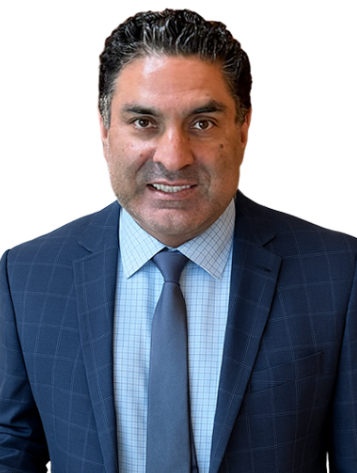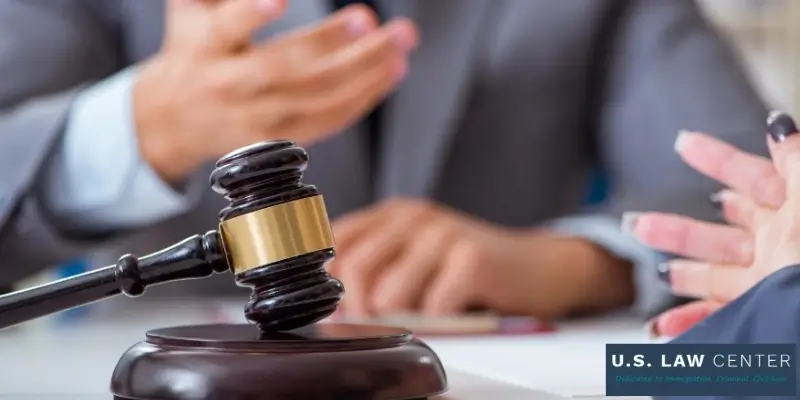The Violence Against Women Act, or VAWA, is a crucial piece of federal legislation that gives key protections and immigration relief to individuals who have survived extreme cruelty, sexual abuse, and domestic violence. For those who have suffered from unsafe conditions in the home or at the hands of an abusive close relative, U.S. citizen, or lawful permanent resident, many potential applicants wonder: who is eligible for VAWA in California?
Potential applicants can benefit from these protections by understanding who’s eligible for VAWA, how the process works, and why now is the time to fight for these crucial protections.
What Is VAWA?
VAWA is federal legislation that gives certain immigrant survivors of abuse the ability to apply for lawful immigration status without their abuser knowing or having to assist. VAWA self-petitioners who have their applications approved can benefit from work authorization, protections from being deported, and the potential eligibility to apply for a green card.
VAWA Eligibility Requirements (California, 2025)
For an applicant to be able to apply for VAWA in 2025, they must meet the following criteria:
- Qualifying relationship with the user. The applicant must be a victim of abuse by a U.S. citizen parent, a child over the age of 21, a spouse or ex-spouse, or a lawful permanent resident parent or spouse. If you file within two years of divorcing your spouse, you do not have to be currently married to them.
- Good faith marriage. If your abuser is your spouse or ex-spouse, you will have to prove that you entered into the relationship in good faith. This means that the marriage was pursued based on a bona fide relationship, and not just to receive immigration benefits.
- Battery or extreme cruelty. You may have to show that you suffered extreme mental or physical abuse. Examples could include sexual violence, physical abuse, emotional manipulation, financial control, intimidation, isolation, and threats of deportation.
- Residence with the abuser. You will need to show that you were living with your abuser at some point in time, even if it was very briefly.
- Good moral character. Finally, applicants need to show that they are a person of “good moral character”. This can involve showing ties to the community and a lack of criminal history. If you have certain criminal convictions, waivers may be available depending on your circumstances.
Why VAWA Matters in California
According to data from 2021, 69% of undocumented immigrants in the state of California had been living there for more than 10 years, which shows that they have deep ties to the community. Furthermore, compared to all workers in the state, who have a median hourly wage of $27.00, the wage for undocumented immigrant workers was only $16.00.
Finally, 5.75 million residents in California are living with someone who is or was undocumented. Many of these individuals are experiencing domestic violence, but they are scared to report it as a result of their precarious immigration status. These issues continue to deeply impact individuals in 2025, especially low-income, LGBTQ+, and women immigrants who are forced to rely on abusive relatives for immigration or financial security.
Fortunately, VAWA can help break this devastating cycle.
How to Apply for VAWA in California
If you are considering applying for VAWA in California, it’s recommended to work with an experienced attorney who can help you successfully navigate the process. They can ensure your case is kept confidential and efficient, working to secure your legal protections and safety with urgency and precision. Specifically, they can help you with the following:
- Filing Form I-360. This is the major VAWA self-petition that must be submitted to the U.S. Citizenship and Immigration Services (USCIS). Form I-360 should be submitted in tandem with key documentation, such as evidence of abuse, like police reports, communication records, photos, and statements from community members. Personal statements can also be submitted.
- Waiting for your prima facie determination. If USCIS decides that you meet the basic requirements for a VAWA self-petition, they can give you a prima facie determination, which gets you access to certain benefits while your case is under review.
- Applying for work authorization. If you get your Form I-360 approved, you may be able to apply for work authorization by submitting Form I-765.
- Applying for a green card. If you are eligible, you can file Form I-485 to get your immigration status adjusted without having to leave the country. Upon successful completion, you will become a lawful permanent resident.
A dedicated following attorney from U.S. Law Center can help you successfully navigate the VAWA application process.
FAQs
Do I Need to Report the Abuse to Police to Apply for VAWA?
No, you do not have to report any abuse to the police to apply for VAWA. It is not a requirement under VAWA to have your abuser face criminal charges or to get a police report generated. USCIS recognizes that many victims are afraid of going to the police. While police reports can serve as helpful evidence, personal declarations alone may be sufficient, along with other types of evidence.
Why Is VAWA Important in California?
California is home to over 5.75 million undocumented individuals, including people who have been living with an undocumented family member as of 2021. This makes VAWA protections especially essential. As there is a large portion of long-term undocumented residents in the area, it’s crucial to have the opportunity to self-petition under VAWA. This allows victims to seek protection without being reliant on their abusive family member for legal status.
Do I Have to Be Married to Apply for VAWA?
No, it is not a requirement to be married in order to apply for VAWA. If you were previously married to a green card holder or U.S. citizen who was abusive and your marriage ended within the past two years, you may still qualify to submit a self-petition under VAWA. Furthermore, widowers and widows may also apply, depending on the case details.
Can Men Apply for VAWA in California?
Yes, men can apply for protection under VAWA. This is because our protections do not discriminate based on gender. Therefore, LGBTQ+ applicants, non-binary individuals, and men are eligible to apply if they meet all of the other criteria, such as being physically located in the US, having been subject to abuse by a close U.S. citizen or lawful permanent resident family member, and suffering extreme cruelty.
Speak With a VAWA Lawyer in California Today
If you are relying on an abusive family member for safety and immigration status, you may be able to receive crucial protections under the Violence Against Women Act. If you believe you could be eligible, a VAWA immigration attorney from U.S. Law Center is eager to review your case with you. Contact us today to get started.


